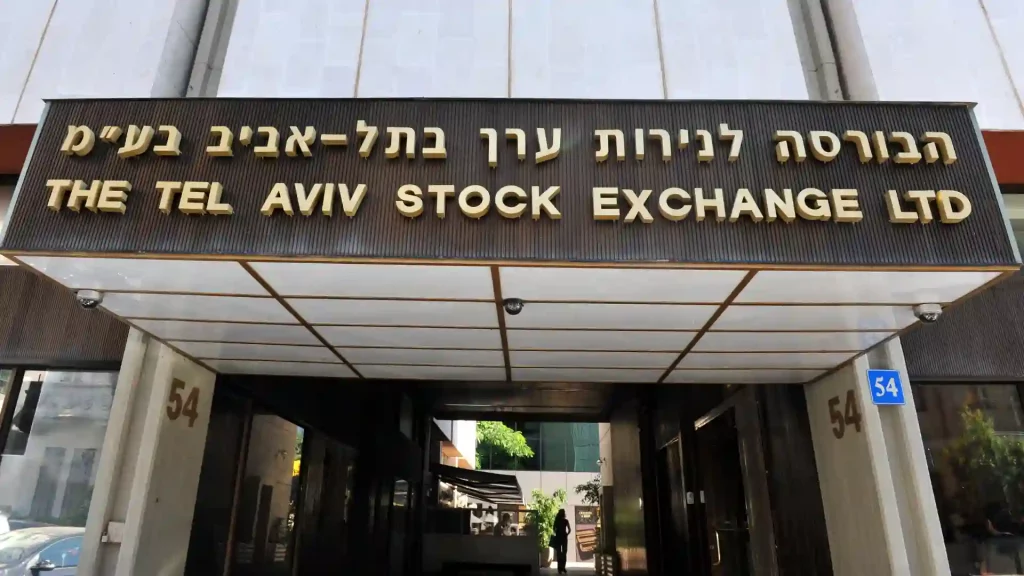Israel’s Tel Aviv stock exchange is all set to develop a trading platform based on Distributed Ledger Technology (DLT), enabling traders to trade digital assets on the platform.
As part of its five-year plan, the exchange will create a roadmap for executing this decision which pertains to modernizing existing infrastructure, using cutting-edge technologies to build an exclusive digital assets trading platform. In fact, the Tel Aviv Stock Exchange has revealed in its announcement that it is going to build a one-stop for all kinds of financial activities that involve Blockchain or DLT. It has specifically mentioned Smart Contracts and the tokenization of digital assets (NFT).
A 7-Step Overview of The Plan Charted Out By TASE
It seems that the stock exchange is trying to insulate the volatility in digital assets by planning to keep the digital asset trading platform separate from the core systems.
In its regulatory report, TASE has revealed a high-level overview of the plan-
- The trading platform or the services provided should be flexible.
- The exchange will open its doors for international traders and investors improving the ease of trading and the ease of investing for foreign traders and investors.
- Once the initial products receive a favorable response, the exchange will protect and improve the scalability of those new digital asset classes.
- A gradual reduction in operational expenses.
- Since TASE is one of the first movers to establish a blockchain-based trading platform, it plans to leverage the first mover’s advantage.
- Lastly, once the backbone of the trading platform is built, the exchange will focus on technological innovation and,
- Customer base expansion.
Asset Classes To Be Traded On The Proposed Platform
While the backbone of the platform will be blockchain-based, the Tel Aviv Stock Exchange is keeping its door open for a variety of asset classes –
- The new platform can also be potentially used to invest in privately held companies.
- Digital bonds
- And, of course, it will be used to trade crypto, non-fungible tokens and other such assets.
State of Digital Assets Trading In Israel
The citizens of Israel have been very much into crypto for quite a long time. Gemini, a cryptocurrency exchange, reports a whopping 28% of Israeli citizens own crypto assets. And the TASE reports show that 30% of Israelites who own crypto assets trade them using local crypto trading platforms. The data also reveals that 52% of investors in Israel earmark 10% of their total investments for crypto assets. Back in March 2022, Leumi became the first Israeli bank to allow people to buy and sell crypto assets.
Challenges
As expected, like other countries, Israel too has vague laws regarding cryptocurrencies and their usage as trading securities. In 2017, the Israeli tax agency decided to consider cryptocurrencies as assets. Hence, profits from crypto trading started to be seen as capital gains – taxable at least 25%. Entities regarded as businesses will have to shell out further money as profit tax.
Since the law remains vague, regulations can be modified anytime, which can be a problem for all the stakeholders involved. However, the silver lining is that all these regulations prove that the government is open to giving crypto assets legal status. Moreover, since the country’s sole stock exchange is keen to establish a crypto trading platform, people in the industry are hopeful that the regulatory hurdles are going to be proactively addressed.
This decision by the Tel Aviv Stock Exchange further strengthens the legitimacy and popularity of crypto assets. Financial experts and economists are watching the matter closely. A year ago, El Salvador’s decision to make Bitcoin a legal tender flopped miserably. Let’s see how a country’s official stock exchange handles this new experiment. If Israel succeeds, this will be a new chapter in the history of blockchain and crypto assets.
